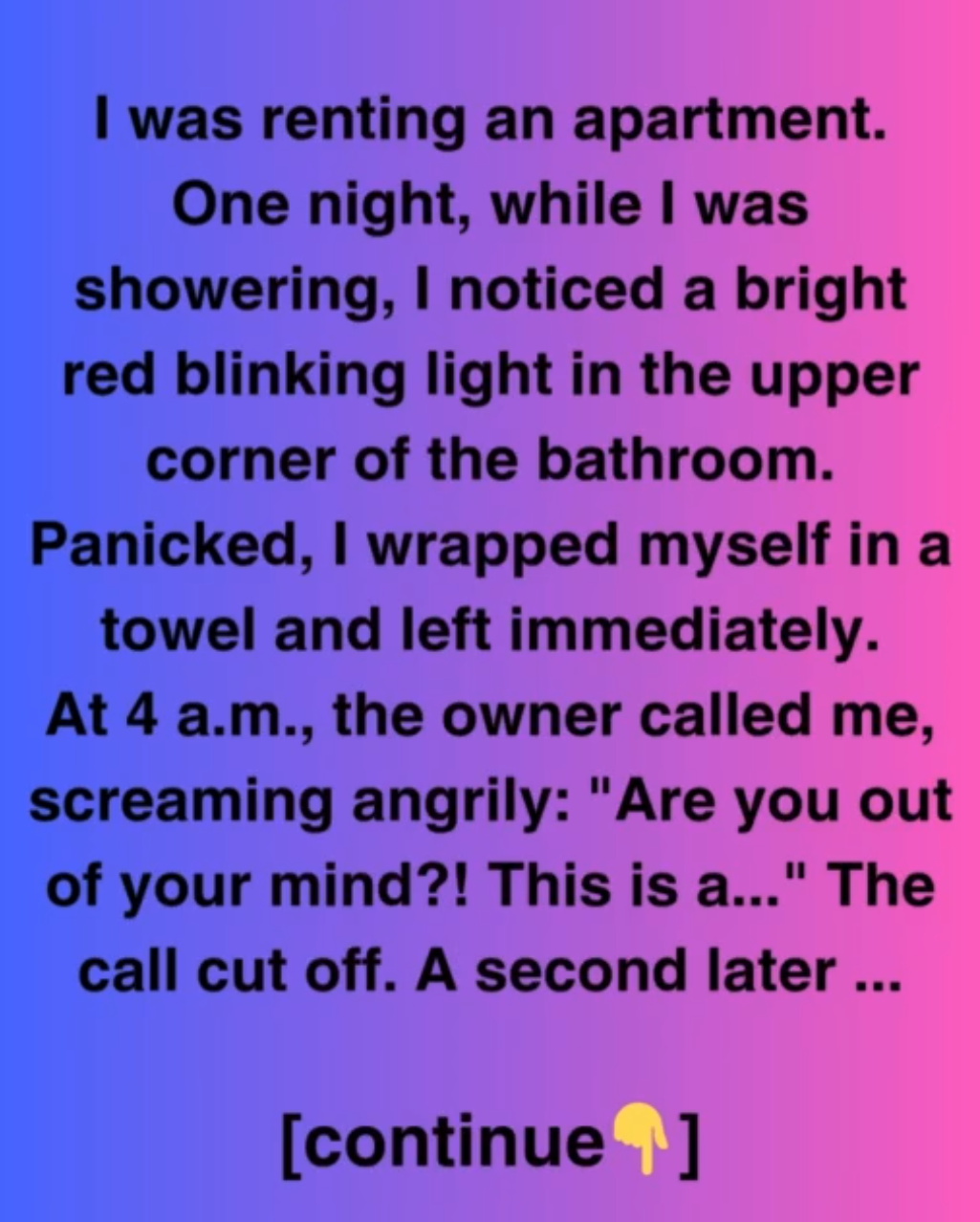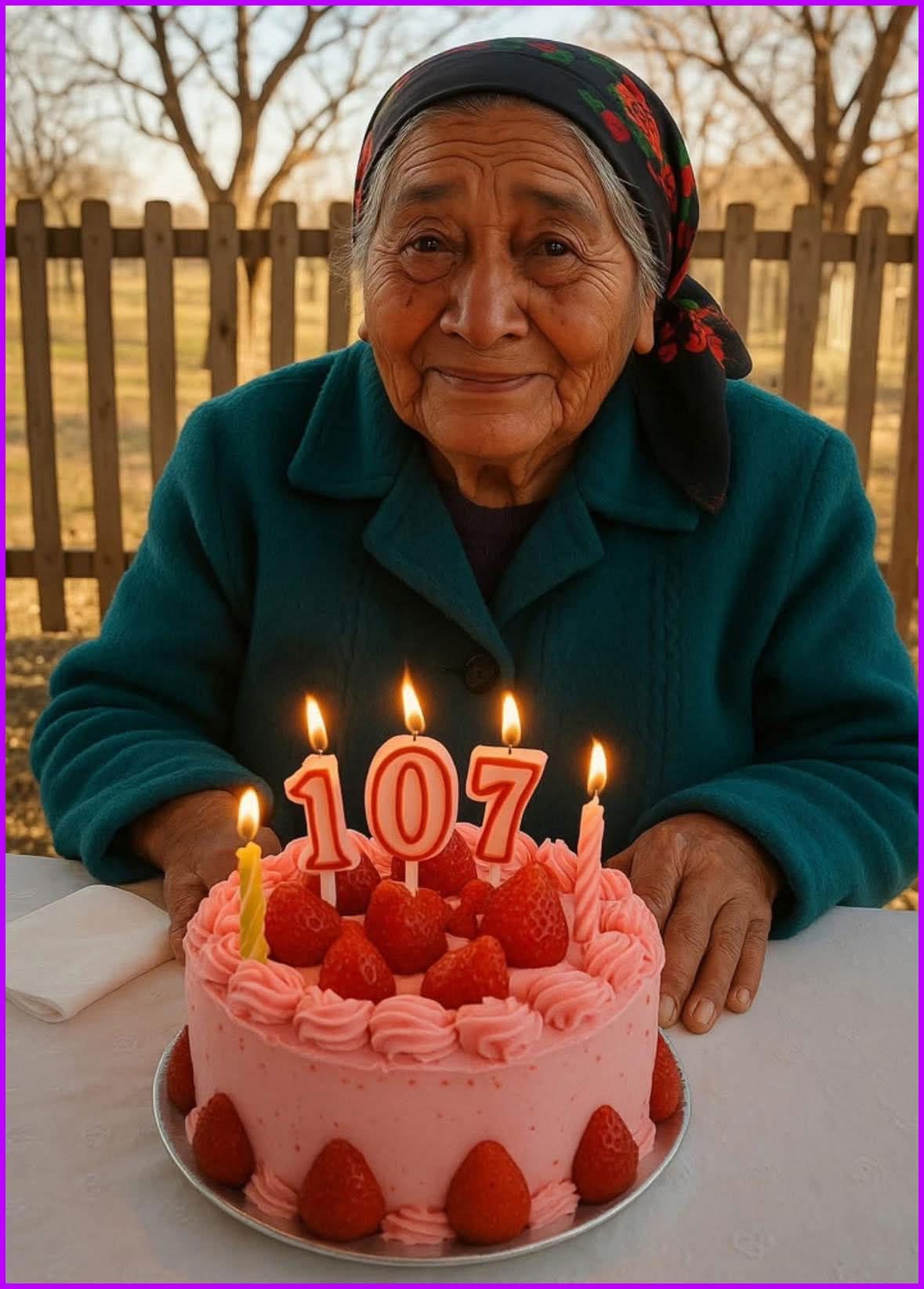I was renting an apartment, and one night while showering, I noticed a blinking red light in the corner of the bathroom. Panicked, I wrapped myself in a towel and fled immediately.
At 4 a.m., the landlord called, yelling: “Are you out of your mind?! This is a…” The call cut off. He rang again seconds later, but I didn’t answer. I sat in my car, barefoot and trembling, staring at the building as if it might burst into flames.
I didn’t know what that red light was, but my instincts screamed that something was wrong. I had only just moved in a week earlier, but everything felt off—there was no peephole on the door, and the windows were nailed shut halfway. Still, the rent was cheap and the place looked clean, so I ignored the weirdness—until the light blinked at me like it was watching.
The next morning, after a sleepless night in my car, I returned with a friend named Radu, who had experience with security systems. As soon as we entered the bathroom, he spotted it.
“That’s a hidden camera,” he whispered, knocking it down with a broomstick. “This is illegal.”
I felt sick. Someone had been spying on me—while I showered, changed, lived.
Within the hour, I packed my things.
The landlord tried calling again, but I ignored him and went straight to the police. To my relief, they took the complaint seriously. There were reports of similar cases nearby, all involving women renting short-term apartments from the same owner. Until now, there had been no proof.
Two days later, I stayed with my cousin while searching for a new place. Every time I closed the bathroom door, I looked for blinking lights. I kept my towel on longer. I felt violated.
Then the landlord sent a text:
“You have no idea what you’ve done. You ruined me.”
I didn’t reply but saved the message for the police. The officer nodded grimly. “This might be bigger than we thought.”
Weeks later, I got a message on Facebook from a woman named Andra.
“Hey, I think we rented from the same guy. Did you find a camera too?”
She had rented from him months earlier and had felt watched, though never found a device. After a week, he claimed there were plumbing issues and forced her out, keeping her deposit. We connected and found four more women with similar experiences.
We created a group chat, sharing details, photos, and floor plans. The camera was always hidden in upper corners of bathrooms or behind vents. Police began building a case but warned us not to post or confront the landlord.
Still, I wasn’t okay. I jumped at every phone sound and slept with the bathroom door locked and wedged with a chair. Trauma doesn’t care about logic.
One night, Andra texted:
“I keep thinking about how many others don’t know they’re being watched.”
That hit me hard. I couldn’t pretend it wasn’t happening.
After three months, the police prepared a search warrant for his properties. But the landlord vanished—no phone, no sightings, empty apartment. The case stalled.
Then I received an anonymous envelope with a USB and a note: “You weren’t meant to see this.”
I took it to the police, who found hours of footage—showers, bedrooms, women sleeping—me included. Each clip labeled by date and apartment. It was horrifying but crucial evidence.
Two weeks later, he was found hiding in a remote village and arrested.
That day, I cried—not just because he was caught, but because I could finally breathe.
The news covered the story. More women came forward. Some declined to press charges, others broke down in court. But a community formed. We talked. We healed.
Andra and I stayed close. One night she said, “Do you realize we stopped him? Maybe saved people we’ll never meet.”
A year later, I spoke at a digital safety seminar, sharing my story not as a victim but as a survivor who fought back.
A young woman approached, trembling. “I saw your story. I thought I was crazy for feeling watched. Now I know I’m not alone.”
Months later, I received a letter from the landlord, sent via his lawyer:
“You ruined my life, but maybe I deserved it. I started recording as a joke. Then it got worse. I lost everything. I think I needed someone to catch me. So thank you.”
I didn’t reply.
Some people spiral silently, unable to ask for help. That doesn’t excuse him, but it explained his brokenness.
I moved on, working with NGOs to educate renters on digital safety—how to spot hidden cameras, protect themselves.
Andra and I co-wrote an article that went viral: The Red Light in the Bathroom: How We Took Back Control.
We didn’t do it for attention—we did it for the girl moving into her first apartment who thinks she’s paranoid.
The biggest lesson?
Trust your instincts. If something feels wrong, it probably is.
Speak up—even if your voice shakes. Silence protects no one.
To anyone who’s been through this—you’re not crazy or dramatic. You’re brave. You deserve to feel safe at home.
If this story touched you, share it. Someone out there might need to hear it. And if trusting your gut changed your life, leave a like—you’re stronger than you know.



